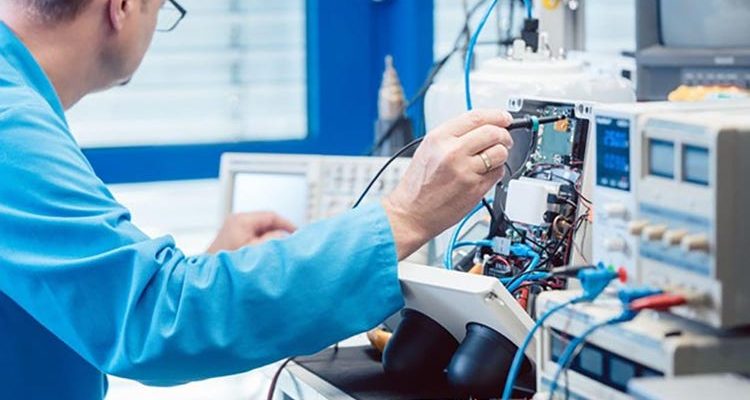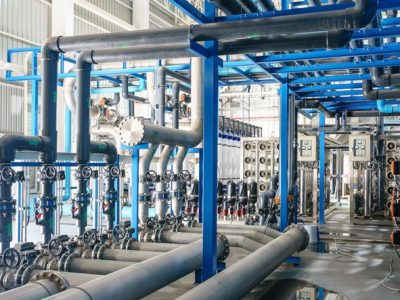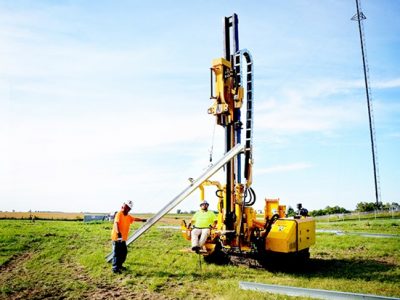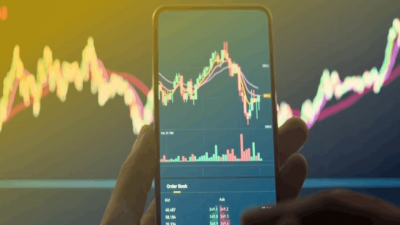The Importance of Metrology Calibration Services
Metrology calibration services play a crucial role in various industries that rely on precise measurements. Whether it’s manufacturing, engineering, or scientific research, accurate and reliable measurements are essential for ensuring product quality, process efficiency, and compliance with industry standards.
1. Achieving Accurate and Reliable Measurements
Accurate measurements are vital for businesses in countless industries. From ensuring the correct dosage of medication in the pharmaceutical industry to maintaining dimensional accuracy in manufacturing processes, precise measurements are the foundation of quality assurance.
Metrology calibration services ensure that measurement instruments such as gauges, scales, and calipers are calibrated to recognized standards. By regularly calibrating these instruments, companies can have confidence that their measurements are accurate, reliable, and traceable to a national standard.
2. Ensuring Compliance with Industry Standards
In many industries, compliance with specific standards and regulations is mandatory. Metrology calibration services help companies demonstrate compliance by ensuring that their measurement instruments meet the required accuracy standards.
Accredited calibration laboratories follow well-established procedures and use calibrated reference standards to perform traceable calibrations. This ensures that the instruments are in accordance with international standards, such as ISO 9001 or ISO 17025, and can withstand scrutiny during audits or inspections.
3. Avoiding Costly Errors and Inaccuracies
Inaccurate measurements can lead to costly errors and inefficiencies. For example, in the aerospace industry, even a minor error in measurements can have catastrophic consequences. Metrology calibration services help prevent such errors by detecting and correcting any inaccuracies in measurement instruments.
By investing in regular calibration services, businesses can avoid expensive rework, product recalls, and customer complaints. Calibration also helps identify any wear or damage to equipment, allowing for timely repairs or replacements, further reducing the risk of errors.
The Process of Metrology Calibration
The process of metrology calibration involves several steps to ensure accurate and reliable measurement results. Understanding these procedures is essential for companies seeking to maintain measurement accuracy.
1. Understanding Calibration Procedures
Calibration procedures vary depending on the type of instrument being calibrated. However, the general process involves comparing the measurements of the instrument under test (IUT) to those of a calibrated reference standard with a higher accuracy.
The calibration technician will measure and record the readings obtained from the IUT and compare them to the reference standard. Any deviations or errors are noted and adjustments are made to the IUT, if necessary, to bring it within the acceptable tolerance limits.
2. Selecting the Right Metrology Calibration Provider
Choosing the right metrology calibration provider is crucial for obtaining accurate and reliable calibrations. When selecting a provider, consider factors such as their accreditation, technical expertise, traceability to national standards, and turnaround time.
Accreditation, such as ISO 17025, ensures that the calibration provider follows internationally recognized standards and operates with the highest level of competency. Technical expertise in the specific type of instrument being calibrated is also essential to ensure accurate calibrations.
3. Conducting Calibration Tests and Analysis
During the calibration process, the technician will perform various tests and measurements to evaluate the accuracy and reliability of the instrument. This may include checking for linearity, repeatability, and hysteresis, among other parameters.
After completing the calibration, the technician will provide a calibration certificate detailing the results of the calibration, including any deviations from the reference standard and any necessary adjustments made. This certificate serves as documentation of compliance and can be used during audits or inspections.
The Benefits of Regular Metrology Calibration
Regular metrology calibration offers numerous benefits for businesses, ensuring optimal performance and quality across various processes and products.
1. Extended Equipment Lifespan
Calibrating measurement instruments on a regular basis helps identify any wear or damage that could affect their performance. By addressing these issues promptly, businesses can extend the lifespan of their equipment and avoid costly breakdowns or replacements.
Regular calibration also helps detect any internal issues within the instrument that may affect its accuracy. By addressing these issues early, businesses can avoid costly repairs or replacements in the long run.
2. Improved Product Quality and Consistency
Accurate measurements are directly linked to product quality. By ensuring that instruments are calibrated and accurate, businesses can maintain consistent quality across their products or services.
Calibration also helps identify any variations or drift in measurement instruments. By monitoring these variations and making necessary adjustments, businesses can maintain their desired level of quality, preventing defects or variations in their products that may lead to customer dissatisfaction.
3. Enhanced Customer Satisfaction
Customers expect precision and quality from the products they purchase or the services they receive. By using calibrated instruments, businesses can provide accurate measurements and deliver products or services that meet or exceed customer expectations.
Using calibrated measurement instruments also helps build trust with customers, showcasing a commitment to quality and accuracy. This trust can lead to increased customer satisfaction, loyalty, and positive word-of-mouth recommendations.
Trends and Innovations in Metrology Calibration Services
Metrology calibration services continue to evolve and adapt to the needs of various industries. Advancements in technology have led to innovative solutions that enhance calibration processes and improve measurement accuracy.
1. Introduction to Automated Calibration Systems
Automation has significantly improved the efficiency and accuracy of calibration processes. Automated calibration systems utilize robotics and advanced software to perform precise measurements, reducing human error and increasing throughput.
These systems can handle high volumes of instruments and perform calibrations with minimal human intervention. This not only saves time but also reduces costs and improves overall calibration accuracy.
2. Utilizing Artificial Intelligence in Metrology Calibration
Artificial intelligence (AI) is transforming various industries, and metrology calibration is no exception. AI algorithms can analyze vast amounts of calibration data and identify patterns or anomalies that may affect measurement accuracy.
By utilizing AI, calibration technicians can make data-driven decisions and optimize calibration procedures. This results in more accurate calibrations and improved measurement processes.
3. Advancements in Mobile Calibration Technologies
Traditional calibration processes often require sending instruments to a calibration laboratory, causing downtime and logistical challenges. However, mobile calibration technologies are now available, allowing for on-site or remote calibrations.
Mobile calibration units are equipped with the necessary equipment and reference standards to perform calibrations in the field. This eliminates the need for instrument transportation and minimizes downtime, improving operational efficiency for businesses in various industries.
As technology continues to advance, metrology calibration services will continue to evolve, providing businesses with more efficient and accurate measurement solutions. By staying updated on these trends and innovations, companies can leverage calibration services to stay ahead of the competition and ensure precise measurement accuracy in their operations.
FAQ
Question: What is metrology calibration?
Answer: Metrology calibration is the process of ensuring that measurement instruments are calibrated to recognized standards, resulting in accurate and reliable measurements.
Question: How does metrology calibration ensure accurate measurements?
Answer: Metrology calibration compares the measurements of an instrument under test (IUT) to a calibrated reference standard with higher accuracy. Any deviations or errors are noted and adjustments are made to bring the IUT within acceptable tolerance limits.
Question: What is the role of metrology calibration in compliance with industry standards?
Answer: Metrology calibration services help companies demonstrate compliance by ensuring that their measurement instruments meet the required accuracy standards set by international standards like ISO 9001 or ISO 17025.
Question: Can metrology calibration help prevent costly errors and inaccuracies?
Answer: Yes, metrology calibration services detect and correct any inaccuracies in measurement instruments, preventing errors and inefficiencies that can lead to expensive rework, product recalls, and customer complaints.
Question: How does regular metrology calibration extend equipment lifespan?
Answer: Regular calibration helps identify any wear or damage to measurement instruments, allowing for timely repairs or replacements. Addressing these issues promptly can extend the lifespan of equipment and avoid costly breakdowns.
Question: How does metrology calibration improve product quality and consistency?
Answer: Metrology calibration ensures accurate measurements, which are directly linked to product quality. By maintaining consistent measurement accuracy, businesses can maintain consistent quality across their products or services.
Question: Can metrology calibration enhance customer satisfaction?
Answer: Yes, by using calibrated instruments, businesses can provide accurate measurements and deliver products or services that meet or exceed customer expectations. This commitment to quality and accuracy builds trust with customers and enhances customer satisfaction.
Question: What are some trends and innovations in metrology calibration services?
Answer: Some trends include automation, with the introduction of automated calibration systems that utilize robotics and advanced software. Artificial intelligence is also being utilized to analyze calibration data and optimize procedures. Mobile calibration technologies are also advancing, allowing for on-site or remote calibrations, reducing downtime and increasing efficiency.












Comments